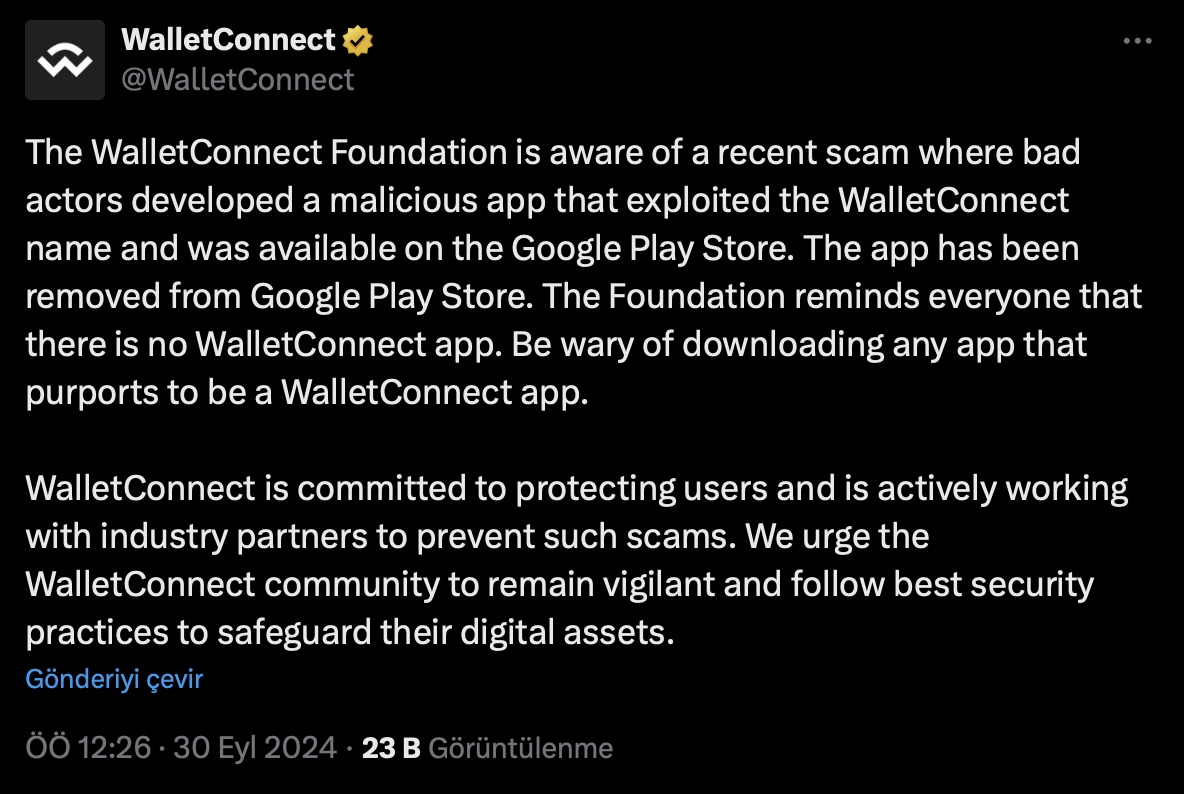The WalletConnect Foundation, responsible for the WalletConnect crypto wallet, has announced a new scam involving a fake application developed by malicious individuals and uploaded to the Google Play Store. This fraudulent app aimed to deceive users and steal their cryptocurrencies. Fortunately, the application was swiftly detected and removed from the Google Play Store. The WalletConnect Foundation reiterated that there is no official WalletConnect application available in app stores and urged users to remain vigilant against such scams.
Fake Application Detected Quickly
According to the statement made today by the WalletConnect Foundation, scammers developed a malicious application using the WalletConnect name and uploaded it to the Google Play Store. The foundation reported that this fake application was quickly identified and removed from the store.
 Crypto Traders Are Rushing to This App – Here’s Why You Should Too
Crypto Traders Are Rushing to This App – Here’s Why You Should Too
The foundation emphasized that there are no official mobile applications under the WalletConnect name in the Android app store, advising users to conduct transactions only through verified sources.
The WalletConnect Foundation highlighted that this scam targets cryptocurrencies through deceptive applications. The foundation pointed out that fake applications can spread rapidly and that users often lack sufficient knowledge to protect their digital wallets. Therefore, it stressed the importance of users being cautious, downloading applications only from official sites and sources.
Attention Needed for Security Measures
WalletConnect encourages users to adhere to the best security practices to protect their cryptocurrencies. Key security measures include avoiding downloads from unverified sources and not clicking on unknown links. The foundation also announced that it collaborates with industry partners to combat such fraudulent activities and takes necessary steps to prevent similar incidents.
Lastly, the WalletConnect community was reminded to stay alert against fraud attempts and follow updated security protocols to protect their cryptocurrencies. As fake applications and other fraudulent schemes are increasingly prevalent, individual users’ awareness and caution are highlighted as the most effective defense against such attacks.


 Türkçe
Türkçe Español
Español









